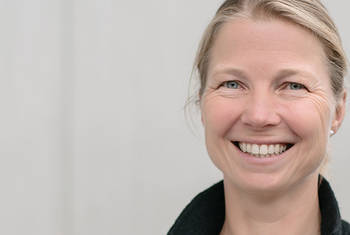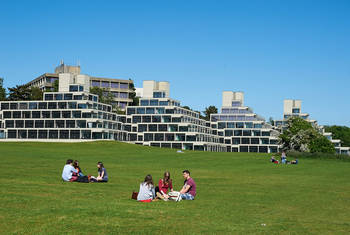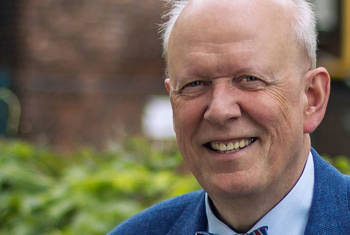Maren Duvendack Why Does Replication Encounter Such Resistance in Economics?
Dr. Maren Duvendack is a Senior Lecturer in Development Economics in the School of International Development at the University of East Anglia. Having previously worked as a financial analyst in Japan, she has also held a visiting scholarship at the Gujarat Institute of Development Research. Duvendack’s areas of expertise include quantitative impact evaluation methodologies, applied econometrics as well as replication and the reproduction of quantitative analysis. She has extensive developing country experience, including in Bangladesh, Afghanistan, Uganda, Mozambique and Laos.
Area of Research
Development Economics
since 2017
Senior Lecturer (Associate Professor) in Development Economics
University of East Anglia (more details)
School of International Development
2012-2016
Lecturer (Assistant Professor) in Development Economics
University of East Anglia (more details)
School of International Development
2011-2013
2011
Postdoctoral Fellow in the Director General’s Office on Impact Assessment
International Food Policy Research Institute
2010
Senior Research Associate
University of East Anglia (more details)
School of International Development
2008-2009
Visiting Scholar
Gujarat Institute of Development Research
2010
2003
M.Sc. International Business Economics
City, University of London
Cass Business School
2002
B.A. Economics
Universität Trier
& University of Greenwich (UK)
- Journal of Development Studies
- World Development
- Journal of Development Effectiveness
- Agricultural Economics
- Development Studies Research
- Agrarian Change and the Journal of South Asian Development
- American Economic Association
- Development Studies Association
- British Association of South Asian Studies
- UK Evaluation Society
- etc.
 © University of East Anglia
© University of East Anglia

University of East Anglia
Norwich, United KingdomThe University of East Anglia (UEA) is a UK Top 15 university. Known for its world-leading research and outstanding student experience, it was awarded Gold in the Teaching Excellence Framework. UEA is a leading member of Norwich Research Park, one of Europe’s biggest concentrations of researchers in the fields of environment, health and plant science. It is ranked in the Top 200 of the world’s universities and is in the Top 50 for research citations. (www.uea.ac.uk)
Map
Claims that less than 10% of published scientific papers can be reproduced have led to increased interest in replication, a process whereby researchers check the validity of published empirical findings. In this video, MAREN DUVENDACK investigates why replication has faced particular resistance in economics. Analyzing some 200 replication studies that have appeared in leading economics journals over the past 60 years, Duvendack highlights a lack of publication outlets for replication studies in the discipline. Identifying the underlying reasons why economics journals remain resistant to replication, Duvendack argues that economics must be more open to innovations originating in other fields (like Registered Replication Reports) if it is to adequately address the reproducibility crisis.
LT Video Publication DOI: https://doi.org/10.21036/LTPUB10711
What Is Meant by "Replication" and Why Does It Encounter Resistance in Economics?
- Maren Duvendack, Richard Palmer-Jones and W. Robert Reed
- American Economic Review
- Published in 2017









